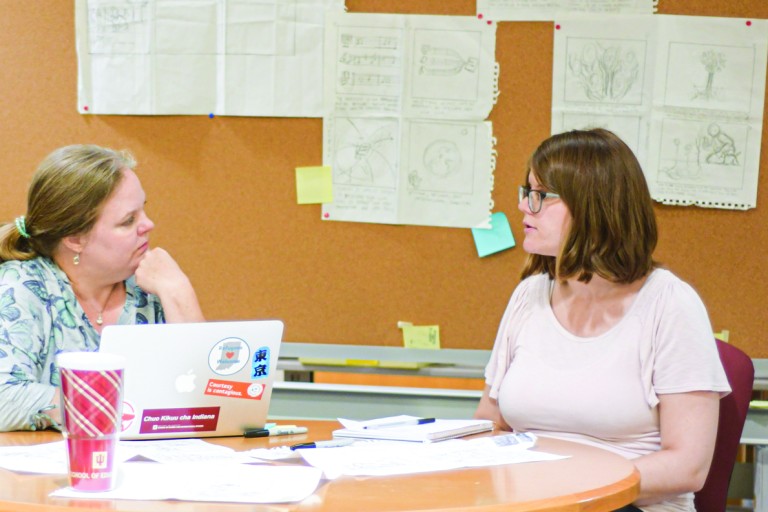
Getting on the same page: IU Libraries experts support faculty who want to center student affordability without compromising student learning.
Open Educational Resources, OER for short, are materials used for teaching and learning that have been shared under a special license or exist in the public domain, giving other instructors permission to use or revise them. Such resources include textbooks, media, entire courses, or other teaching tools.
Faculty who use OER, open access, and library licensed or published materials experience classroom teaching with 100% student access to course materials. In 2022, IU Libraries reassigned former Scholarly Communication Librarian, Sarah Hare, to a full-time focus as IU Bloomington's Open Education Librarian.
She said, "My time is now completely focused on affordable course materials, open educational resources (OER), using Libraries’ resources as course materials."


